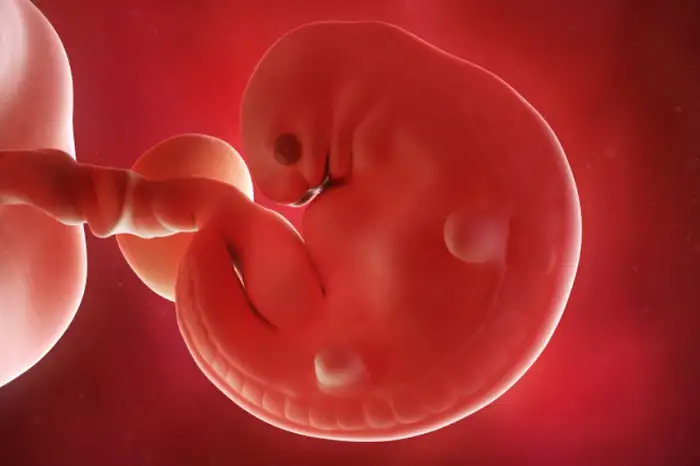- Home

- Pregnancy Insomnia: Meaning & Causes
In this Article
Pregnancy
Pregnancy Insomnia: Meaning & Causes
Updated on 8 December 2022
You probably expected to be sleep deprived once your baby is born but not while you’re pregnant. If you’ve been tossing and turning in your bed all night long, then you’re not alone. Most women experience pregnancy insomnia while they’re pregnant. As it turns out, pregnancy can cause fatigue and exhaustion during the day and insomnia at night.
In this article, we will discuss insomnia during pregnancy, common culprits of pregnancy insomnia and some tips and remedies for a good night’s sleep.
What is Insomnia During Pregnancy?
Insomnia during pregnancy means you face difficulties falling asleep, staying asleep or both. While women can experience pregnancy insomnia during all the stages of pregnancy, it tends to be more common during the first and third trimesters. Between the midnight washroom trips, raging hormones and pregnancy woes like heartburn and backache, you’re probably spending more time out of the bed than in it. However, the good news is that pregnancy insomnia isn’t harmful to your baby.
Causes of Insomnia During Pregnancy?
Here are some of the most common reasons why you might be experiencing insomnia during pregnancy:
1. Backaches
As the center of your gravity shifts forward during the later trimesters of pregnancy, your back muscles may overcompensate and become sore. Additionally, pregnancy causes your ligaments to loosen up, increasing your backache and decreasing your sleep quality.
2. Breast tenderness
In the first trimester, your breast may feel tender and sore. And towards the third trimester, your growing breasts may feel extra sensitive, leaky or heavy, making it hard for you to sleep.
3. Digestive issues
The same hormone that causes relaxes your muscles causes your digestion to slow down. As a result, you experience indigestion, bloating and heartburn during pregnancy.
4. Leg cramps and restless legs
Increased blood circulation and pressure from your growing baby on your nerves and muscles can cause leg cramps. Additionally, you may feel a creepy, crawling sensation in your legs known as restless legs syndrome.
5. Frequent trips to the bathroom
As your uterus exerts more pressure on your bladder, you feel the need to pee more often and even during the night. This can keep you up at night.
6. Vivid dreams
Being pregnant comes with its fair share of vivid dreams which can disturb your sleep and make it hard to fall asleep again.
7. Shortness of breath
As your uterus and baby grow, they exert pressure on your diaphragm, which is just below your lungs. This makes it hard for you to catch a breath, be active or even sleep.
8. Nasal congestion
Pregnancy may cause your nasal passage to swell up and congest, which may block your airways, cause breathing obstructions and pregnancy insomnia.
9. Anxiety
With a baby on the way, you have a lot on your mind. With countless thoughts and concerns spinning through your head, it can be hard to sleep.
10. Growing belly
By the third trimester of your pregnancy, you may not be able to accommodate your growing belly and have trouble finding the right sleeping position.
Complications of Pregnancy Insomnia
It’s important for you to address pregnancy insomnia because your body needs ample rest so you can care for your growing baby. Pregnancy insomnia or obstructive sleep apnea (OSU) may be aggravated by smoking, obesity, age or family history, which can put you and your baby at a risk for premature delivery, prolonged labor or C-section delivery.
Not treating sleep apnea may also lead to pregnancy complications like high blood pressure and difficulty sleeping after birth. It can also make you more vulnerable to depression after birth.
Pregnancy Insomnia Treatments and Home Remedies
Treating insomnia during pregnancy can be a little challenging as many sleep medicines aren’t considered safe for the expecting mother and her baby. But it’s not impossible.
While sleeping straight for 8 hours may sound like a distant dream, here are some home remedies for pregnancy insomnia that you can try:
1. Make a bedtime routine
One of the best ways to cure pregnancy insomnia is to develop good sleeping habits. Start by making a bedtime routine by going to bed at the same time each night. Do something that helps you unwind such as a warm bath before you sleep.
2. Exercise and diet
Your exercise and diet can impact your sleep. Try to drink most of your water before 7 pm to avoid midnight bathroom trips. Eat a light and healthy dinner probably at an early time to avoid heartburn. Drinking a warm glass of milk before bed can also help. Lastly, try to stay active during the day.
3. Limit your caffeine intake
If you’re suffering from pregnancy insomnia, it’s best to avoid caffeinated drinks as they keep you awake longer. Additionally, high caffeine intake can lower your iron absorption, which is essential for you and your baby.
4. Stay away from screens
Try to maintain a safe distance from your phone, TV, laptop or tablet at least an hour before you sleep. Scrolling through social media, binge-watching or working late can keep you up at night.
5. Shorten your daytime naps
If you sleep longer during the day then it may become harder for you to fall asleep or stay asleep longer at night. So, try to take shorter naps during the day.
6. Try prenatal yoga
Trying prenatal yoga or other relaxation methods such as meditation and mindfulness can help reduce your anxiety and improve your sleep.
7. Sleep on your side
Sleeping on your side, preferably left, with your knees bent can help increase your comfort and reduce backache, heartburn and hemorrhoids. Additionally, sleeping on the side can improve your blood circulation and reduce swelling in your feet.
8. Use a maternity pillow
As you progress to the third trimester of your pregnancy, your growing belly may make it hard for you to sleep comfortably. Using a maternity pillow can help increase your comfort and provide some relief to your pregnancy insomnia.



Written by
Ravish Goyal
Official account of Mylo Editor
Read MoreGet baby's diet chart, and growth tips

Related Articles
Related Questions
Hello frnds..still no pain...doctor said head fix nhi hua hai..bt vagina me pain hai aur back pain bhi... anyone having same issues??

Kon kon c chije aisi hai jo pregnancy mei gas acidity jalan karti hain... Koi btayega plz bcz mujhe aksar khane ke baad hi samagh aata hai ki is chij se gas acidity jalan ho gyi hai. Please share your knowledge

I am 13 week pregnancy. Anyone having Storione-xt tablet. It better to have morning or night ???

Hlo to be moms....i hv a query...in my 9.5 wk i feel body joint pain like in ankle, knee, wrist, shoulder, toes....pain intensity is high...i cnt sleep....what should i do pls help....cn i cosult my doc.

Influenza and boostrix injection kisiko laga hai kya 8 month pregnancy me and q lagta hai ye plz reply me

Related Topics
RECENTLY PUBLISHED ARTICLES
our most recent articles

Introduction to Labor
Follow These 6 Labor Tips and Rock Your First Birth

Baby Movements
What is the Importance of Baby Kick Counting During Pregnancy?
CSec
If you're going in for a Caesarean Delivery, go with positivity... it might be the best for you and your baby's safety.

Due Date
What should every pregnant woman know about their pregnancy in terms of weeks and months?
Fears & Phobias
Six simple but effective tips to get rid of all your pregnancy related fears

5 Tips to Boost Your Chances of Having a Problem-Free Pregnancy & Have a Healthy Baby
- Spider Veins: Meaning, Causes & Management
- Suffering from Lower Back Pain during Pregnancy? Know What Causes it & How to Get Rid of it
- Doppler Scan During Pregnancy
- Best Comedy Series on Amazon Prime
- Things You Need to Know About Endometriosis Cyst and Pregnancy
- How to Stop Breastfeeding?
- PICA in Pregnancy: Causes, Effects & Treatment
- Signs That Your Baby Will Walk Soon
- Mylo Stretch Marks Oil Review
- Can Eclipses Be Harmful to You or Your Baby During Pregnancy?
- 10 Best Healthy & Refreshing Homemade Pregnancy Drinks
- 5 Natural Ways To Get Glowing Skin At Home
- Top 10 Horror Movies On Hotstar
- Temper Tantrums: Meaning and How to Manage


AWARDS AND RECOGNITION
Mylo wins Forbes D2C Disruptor award
Mylo wins The Economic Times Promising Brands 2022
AS SEEN IN
















At Mylo, we help young parents raise happy and healthy families with our innovative new-age solutions:
- Mylo Care: Effective and science-backed personal care and wellness solutions for a joyful you.
- Mylo Baby: Science-backed, gentle and effective personal care & hygiene range for your little one.
- Mylo Community: Trusted and empathetic community of 10mn+ parents and experts.
Product Categories
baby carrier | baby soap | baby wipes | stretch marks cream | baby cream | baby shampoo | baby massage oil | baby hair oil | stretch marks oil | baby body wash | baby powder | baby lotion | diaper rash cream | newborn diapers | teether | baby kajal | baby diapers | cloth diapers |





